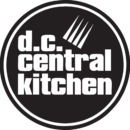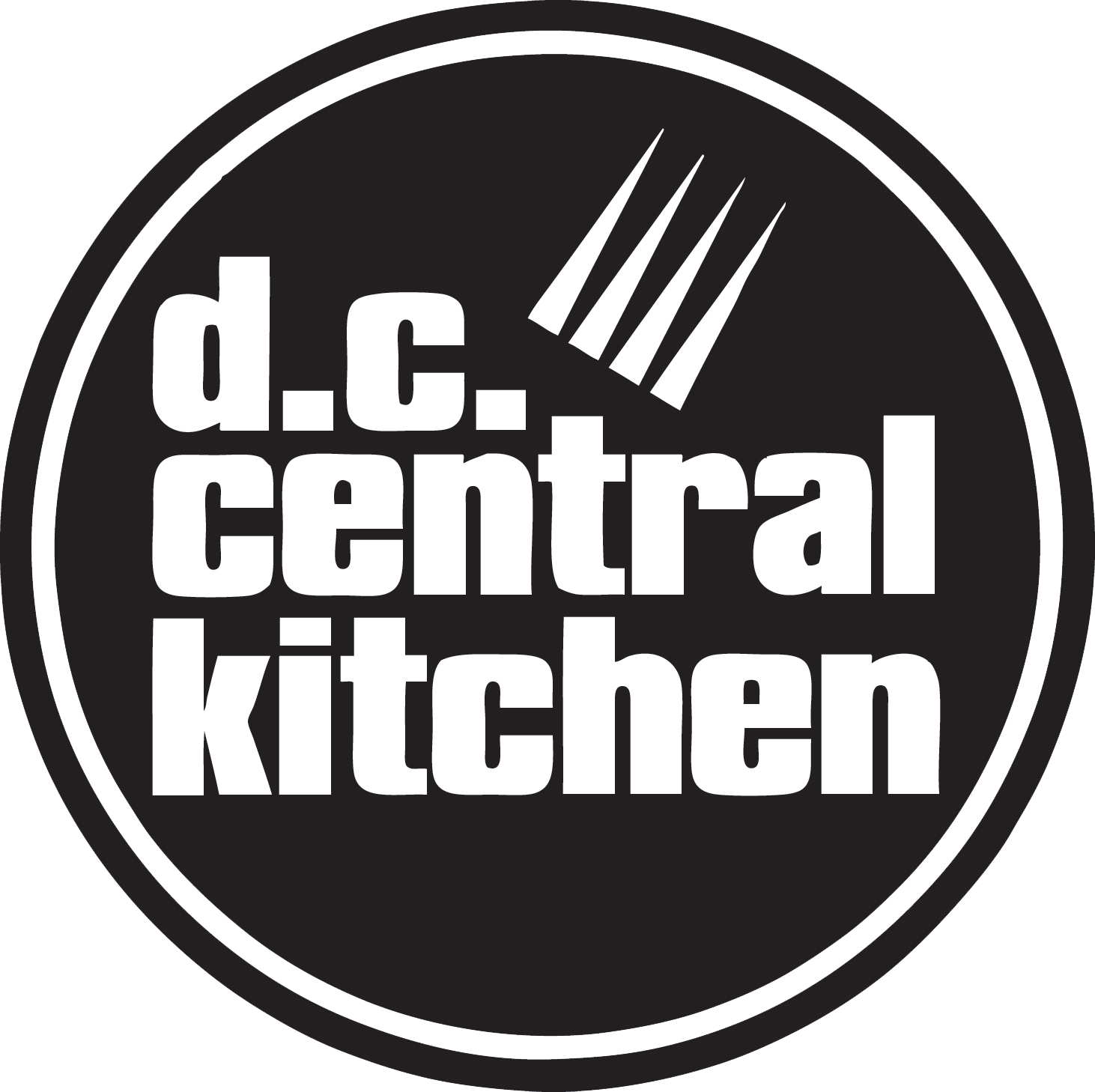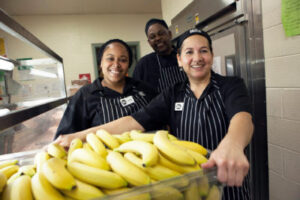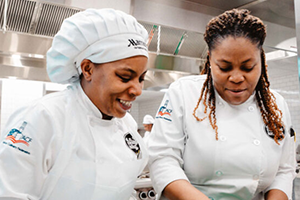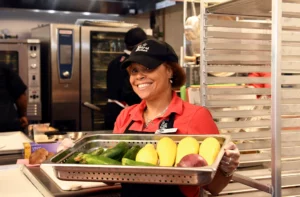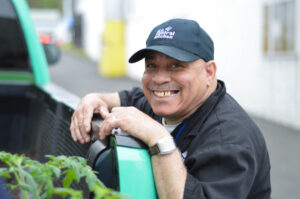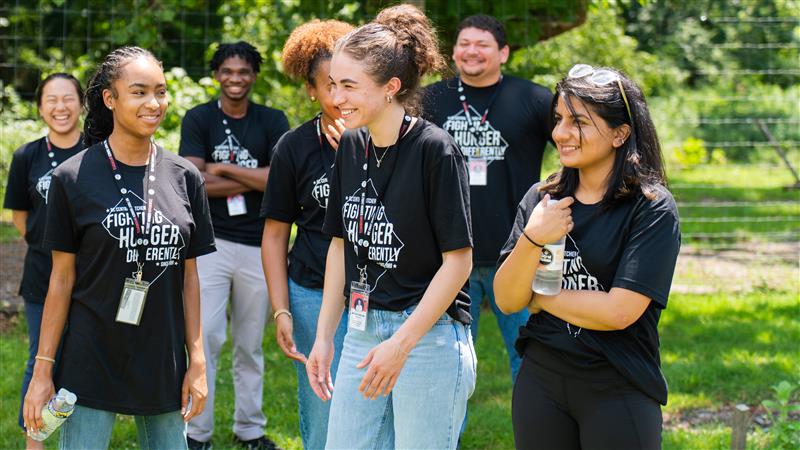On a sunny morning in Southeast DC, a group of DC Central Kitchen’s summer interns arrived at THEARC, the community hub built by Building Bridges Across the River (BBAR) in 2005. As the communications intern I had the opportunity to see firsthand how DCCK is more than just a food provider; we’re part of a larger, community-driven movement designed to create long-term solutions to food insecurity and economic inequality in Ward 7 and 8.
Building Bridges Across the River has been a catalyst for positive change in Southeast DC since 1997. Their commitment to providing equitable access to health, arts, and economic opportunities is embodied in THEARC, the largest nonprofit hub in the country, which serves as home to a diverse range of nonprofit organizations and community services. From cultural programs and health care to education and workforce development, THEARC is a testament to what happens when infrastructure is thoughtfully built to support both immediate and long-term community needs.
Since 2019, DCCK has been deeply involved at THEARC, offering not just food, but access to resources, education, and opportunities. We believe in addressing the root causes of hunger by offering more than just meals—we want to provide the skills and opportunities that can help break the cycle of food insecurity.
JJ, the Senior Farm Manager at BBAR, gave our interns a tour of the garden. It’s clear just how integrated this space is into the fabric of the community. JJ works year-round in the garden, cultivating fresh produce that plays a vital role in THEARC’s food programs. The interns had a chance to get their hands dirty, repotting rosemary plants that would eventually be distributed to families. This hands-on experience gave us a deeper understanding of how food sovereignty is cultivated on the ground—literally.
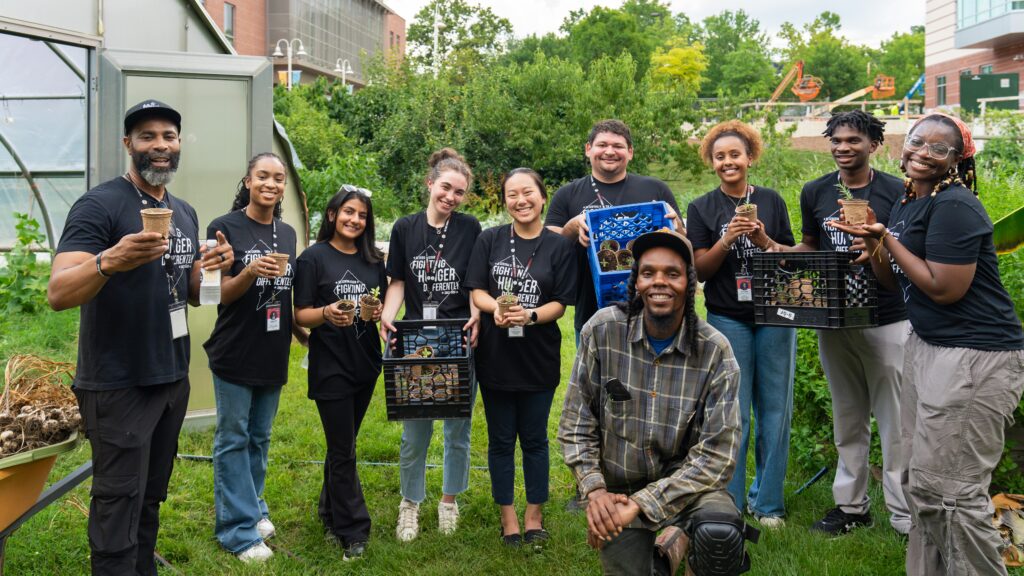
Our partnership with BBAR isn’t just about food distribution; it’s about holistic support that enables the community to thrive. For instance, Culinary Job Training students from DCCK work at THEARC’s social enterprise café, gaining real-world experience while running the daily operations and catering services. These students aren’t just learning to cook—they’re gaining skills that open doors to sustainable employment and long-term success.
At THEARC, we are committed to more than just providing food for today; we’re here to empower the community with the skills and resources necessary to build a stable and secure life. Whether it’s providing job training, offering chef demos on healthy eating, or giving people the tools they need to cook healthy meals at home, our mission goes far beyond short-term assistance. We want to help people become independent, which is why we emphasize opportunities for growth and self-sufficiency alongside food access.
One of the standout programs in this partnership is Food and Farm Fridays, a weekly food distribution event held at THEARC West from June through November every Friday. Last year, the program had about 2,300 attendees, with an average of 100 visitors each week. Over the course of the program, DCCK distributed 5,800 meals, and the Capital Area Food Bank provided 27,500 pounds of fresh produce. Every third Friday, we also offer chef demos, where community members can learn how to make the most of fresh produce from THEARC’s garden. These demos provide valuable skills that help families create healthy, cost-effective meals at home.
Scott Kratz, Executive Vice President of BBAR, shared, “Our partnership with DC Central Kitchen is about more than meals—it’s about justice, dignity, and opportunity. Together, we’re investing in the people of Ward 8, creating pathways to build wealth and ensure every neighbor has access to good food and good jobs. This is what community-led change looks like.”
The interns saw firsthand how DCCK and BBAR work together to create this community-centered ecosystem. From the Culinary Job Training program to the food distribution efforts, they observed how DCCK’s programs provide more than just food—they offer opportunities for growth, jobs, and skill-building. The experience reinforced our belief that food insecurity is a complex issue that requires a multifaceted approach, and at THEARC, we’re addressing that in every way we can.
